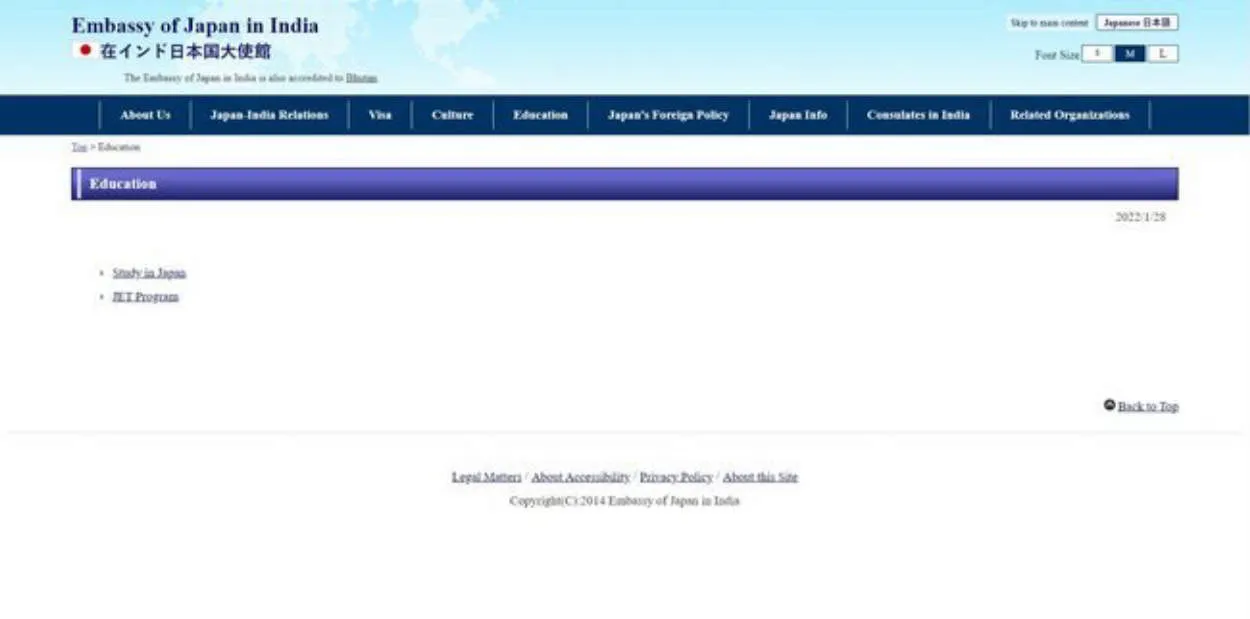If you’re dreaming of studying in Japan with the help of a scholarship, it’s essential to know how to increase your chances of securing one. In this article, we will share some valuable tips that will improve your chances of landing a Japanese scholarship and making your educational journey a reality.
Researching different scholarship options in Japan
When it comes to studying in Japan, securing a scholarship can make a significant difference in your educational journey. Scholarships not only provide financial support but also open doors to various opportunities and experiences. To increase your chances of landing a Japanese scholarship, it is essential to thoroughly research and understand the different options available. Here are some essential tips to help you in your quest:
-
Identify your goals and interests
Before diving into the world of scholarships, first, identify your goals and interests. Consider what field of study you want to pursue and the specific universities or programs in Japan that align with your aspirations. This will help you narrow down your scholarship search and target the most relevant opportunities.
-
Explore government-funded scholarships
The Japanese government offers various scholarships to international students, such as the MEXT (Ministry of Education, Culture, Sports, Science, and Technology) scholarships. These scholarships cater to different academic levels and fields of study. Visit the official scholarship websites or contact the Japanese embassy in your home country to explore the eligibility criteria, application process, and deadlines.
-
Look into university-specific scholarships
Many universities in Japan also provide their own scholarships for international students. Check the websites of your preferred universities and browse through their scholarship opportunities. Note the specific requirements, deadlines, and any additional materials you may need for the application.
-
Consider private scholarships
In addition to government and university scholarships, there are private organizations and foundations that offer financial assistance to international students studying in Japan. Research and identify these private scholarship options, paying attention to their eligibility criteria, application procedures, and any specialized requirements they may have.
-
Network and seek guidance
Networking can play a crucial role in finding scholarship opportunities. Reach out to alumni, professors, or professionals who have experience studying in Japan or have knowledge of scholarship programs. Attend education fairs or seminars to connect with representatives from Japanese universities, scholarship providers, and cultural exchange organizations. Seek guidance and advice to enhance your understanding of the available options.
-
Prepare a compelling application
Once you have identified potential scholarships, dedicate time to prepare a strong application. Follow the instructions carefully, submit all required documents, and showcase your achievements, academic excellence, and personal motivations effectively. Tailor your application to meet the specific requirements of each scholarship, highlighting how it aligns with your goals and aspirations.
Remember, researching different scholarship options in Japan is a crucial step towards boosting your chances of securing a scholarship. Start your search early, stay organized, and put in the effort required to make your application stand out.
Preparing a strong scholarship application

When it comes to landing a Japanese scholarship, having a strong application is crucial. Here are some essential tips to boost your chances:
1. Research the scholarship
Begin by thoroughly researching the scholarship you are applying for. Understand its requirements, eligibility criteria, and objectives. This will help you tailor your application to match the scholarship’s priorities.
2. Highlight your achievements
Showcase your academic achievements, extracurricular activities, and any relevant experiences. Emphasize how these accomplishments align with the scholarship’s goals and contribute to your suitability as a candidate.
3. Craft a compelling personal statement
A well-written personal statement is vital. Use this opportunity to express your passion, motivation, and unique qualities. Explain why you deserve the scholarship and how it aligns with your future goals.
4. Secure strong recommendation letters
Obtain recommendation letters from teachers, mentors, or employers who can vouch for your abilities and character. Make sure to provide them with relevant information about the scholarship and highlight the qualities you want them to emphasize.
5. Prepare a comprehensive resume/CV
Compile a detailed and up-to-date resume/CV that highlights your educational background, work experience, skills, and any relevant involvements. Tailor it to match the scholarship’s focus areas.
6. Proofread and edit
Thoroughly proofread your application for grammar, spelling, and formatting errors. Edit it to ensure clarity, conciseness, and coherence. Ask a trusted friend or mentor to review it as well.
7. Submit before the deadline
Make sure to submit your application before the deadline. Late submissions are generally not accepted. Plan your time wisely to gather all the required documents and double-check that you have completed all the necessary forms.
Showcasing relevant academic achievements and extracurricular activities
When it comes to landing a Japanese scholarship, highlighting your academic achievements and extracurricular activities can significantly boost your chances. Japanese scholarship programs are highly competitive, and the selection committee wants to see students who not only excel academically but also have a well-rounded profile.
One essential tip is to showcase your strong academic background. Include your grade point average, any honors or awards you have received, and relevant coursework that demonstrates your proficiency in the field you wish to pursue. Providing concrete evidence of your academic success will help convince the scholarship committee of your potential for further academic achievement.
In addition to academic achievements, Japanese scholarship programs also value well-rounded individuals who actively participate in extracurricular activities. This could include involvement in clubs, sports teams, community service, or leadership positions. Be sure to emphasize your contribution and impact in these activities, highlighting any skills or qualities you have developed.
Furthermore, it’s important to tailor your application to the specific scholarship program you are applying to. Research the program thoroughly and identify the qualities and values they prioritize. Align your achievements and activities with these qualities to demonstrate your compatibility with the program’s objectives.
Remember to present your accomplishments and activities in a clear and organized manner. Use bullet points or numbered lists to make your achievements stand out. Additionally, utilize headings or subheadings to categorize different areas such as academic achievements and extracurricular activities.
To sum up, showcasing relevant academic achievements and extracurricular activities in your scholarship application is crucial for maximizing your chances of success. By demonstrating your academic excellence and involvement in various activities, you can prove to the selection committee that you are a well-rounded candidate who is deserving of the scholarship opportunity.
Conclusion
In conclusion, by following these essential tips, you can greatly increase your chances of landing a Japanese scholarship. Start by researching and understanding the available scholarship programs, meeting all the eligibility criteria, and submitting a complete and well-prepared application. Additionally, emphasizing your academic achievements, language proficiency, and unique qualities will make you a standout candidate. Finally, networking with alumni and seeking guidance from professionals in the field will provide valuable insights and support throughout the application process. Good luck!
